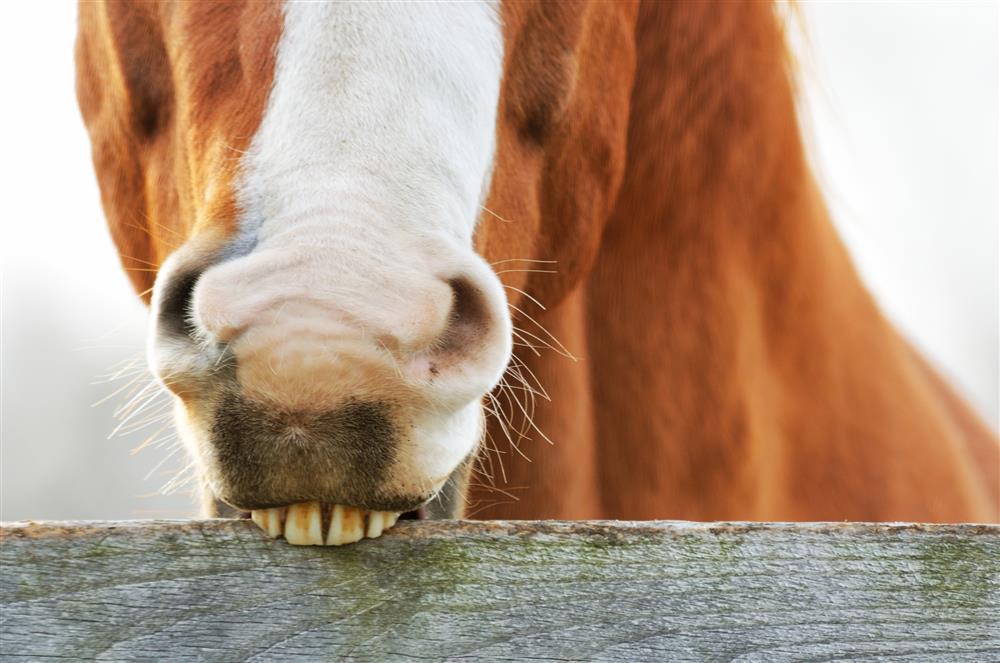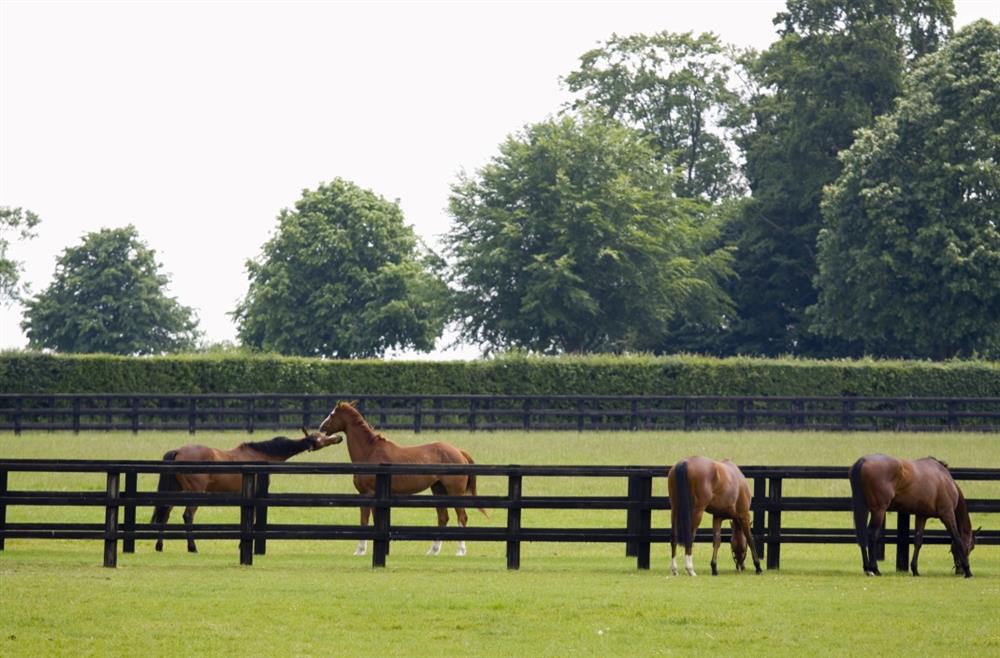New research supports the theory that crib-biting relieves stress and should not be prevented. Instead, we must try to keep horses who practice the behaviour in ways which minimise their need to do so.
Researchers at the Royal Agricultural University and Aberystwyth University have found more evidence to back what others have long believed. For too long, crib-biting, weaving and wind-sucking were labelled “stable vices” and the emphasis was on preventing them rather than asking why they occurred.

Crib-biting, with or without the accompaniment of wind-sucking, has always been held up as the most expensive problem. Cribbers damage the surfaces they bite, so many yard owners didn’t like them.
Twenty years ago, I turned down the chance to buy a lovely four-year-old with huge jumping talent and a generous nature. He was a crib-biter and wind-sucker and the owner of my yard wouldn’t take him. My trainer said that if I didn’t buy him, he would.
Fast forward four years and that horse was jumping at Grade A. He still cribbed, but if anyone commented on it, my trainer said: “He’s Grade A and rarely has a pole down. As far as I’m concerned, he can do what he likes in his spare time.”
Over recent years, we’ve realised that we should keep horses who show stereotypic behaviour – a much fairer label than stable vices – on a management routine with maximum turnout and a high fibre diet, and that extra nutritional support in the form of supplements may also help. Showing understanding rather than condemnation is a huge step forward and has practical as well as welfare benefits.

If you’re content and relaxed, you perform better and stay healthier. The same applies to horses.
In the UK, we’ve abandoned the ghastly practice of severing muscles in a horse’s throat to prevent him arching his neck to crib. Two years ago, an American vet was performing a “modified version” of this and reported that more than 80% of horses operated on were not cribbing a year later. There was no report of their well-being.
We can’t be complacent. Cribbing collars with metal inserts designed to dig into a horse’s throat and cause pain when he takes up the cribbing stance are still available. So are plain leather versions, but whether they are described as “humane” as a matter of accuracy or to ease the conscience of those who use them is a matter of opinion.
As for the practice of setting a live tape across a horse’s door so that if he cribbed, he received an electric shock – what can you write that is fit to print? I’d love to electrify the door knobs in that inventor’s house.
One of the best livery yard owners I know is practical, full of common sense, takes no prisoners when it comes to owners’ behaviour and is passionate about horse welfare. She doesn’t discriminate against horses with stereotypies, but helps owners adapt their animals’ lifestyle.
These horses are out as much as possible: preferably 24/7. If they have to be stabled, they have ad lib forage, extra nutritional support, stable “toys” and salt licks. If a horse cribs, she fastens a section of old tyre over his stable door or other preferred cribbing surface to minimise damage.

Some owners worry that their horses will “catch” the behaviour by watching another animal display it. You’ll find anecdotal evidence of this, including reports of foals copying their dams, but many researchers believe that any horse who starts a stereotypical behaviour after watching another was already predisposed to it.
The RAU and Aberystwyth researchers warn that if we physically prevent a horse from cribbing, we remove his strategy for coping with stress. While stress isn’t all bad – without it, we wouldn’t survive – too much has serious detrimental effects, as many of us know.
“It isn’t stress that’s to blame – it’s the way you handle it,” says a psychologist of the pressures of life and work.
That may be right. The big difference is that we can make our own choices. Horses can’t, so we must make sure that the choices we impose upon them are fair and informed.












